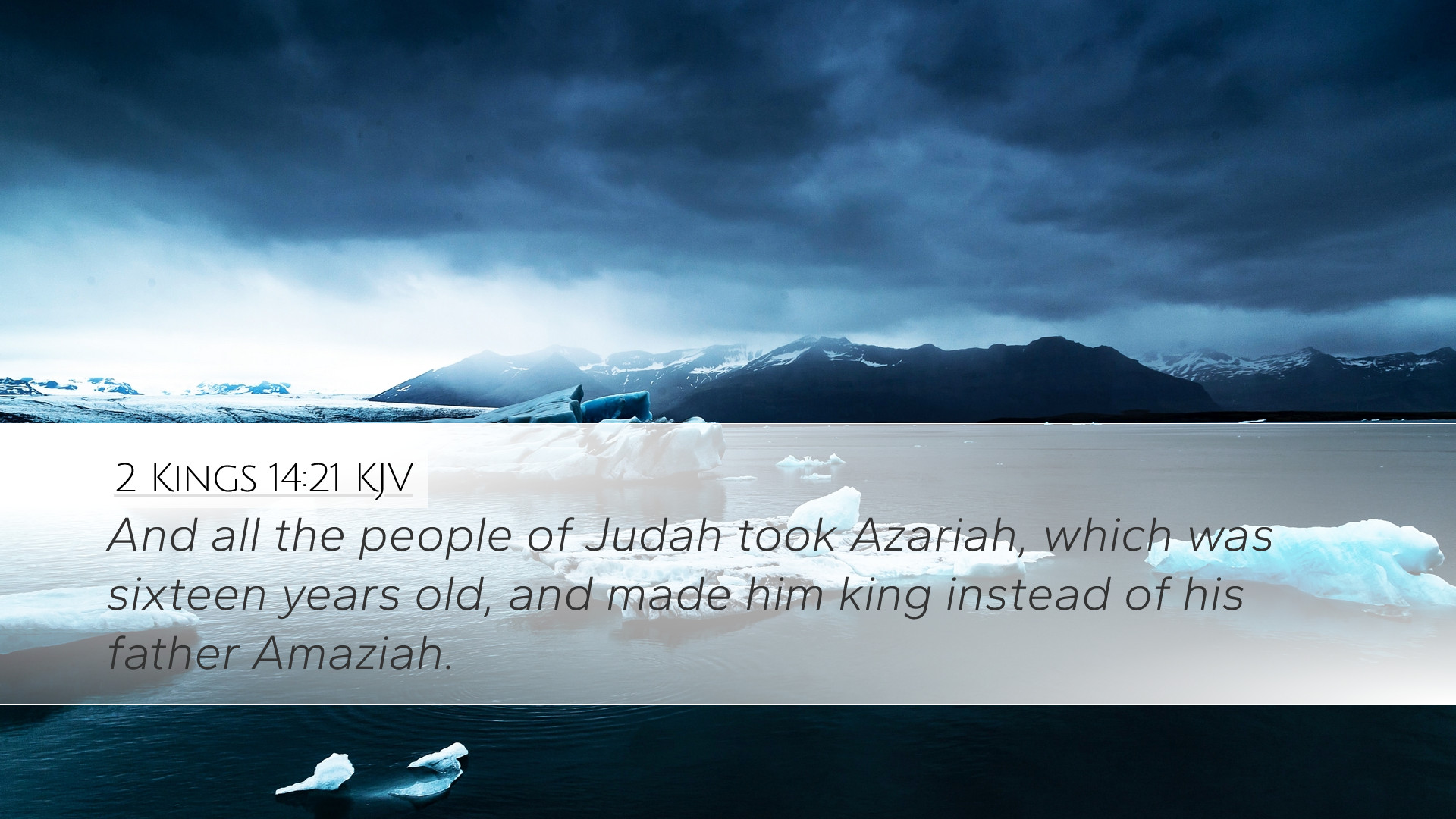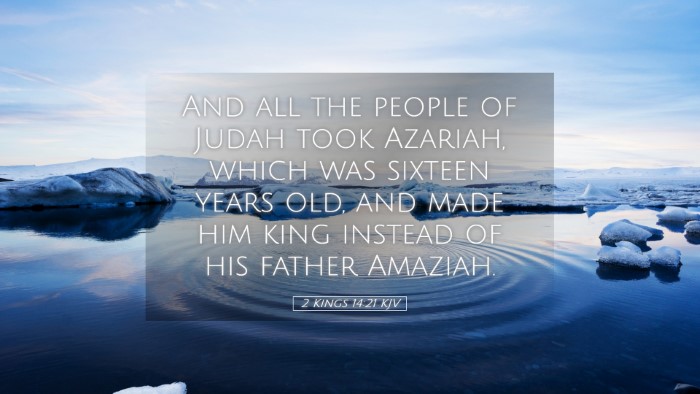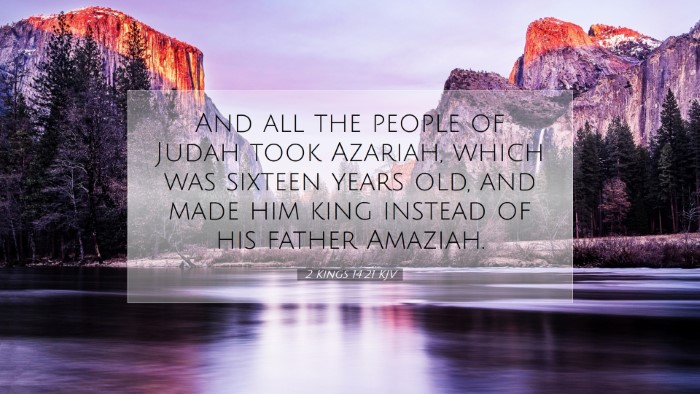Commentary on 2 Kings 14:21
Verse: "And all the people of Judah took Azariah, which was sixteen years old, and made him king instead of his father Amaziah." (2 Kings 14:21)
Introduction
This verse marks a significant transition in the monarchy of Judah, highlighting both the political dynamics and the theological implications of leadership in Israel’s history. Through the views of esteemed commentators such as Matthew Henry, Albert Barnes, and Adam Clarke, this commentary seeks to unpack the layers of meaning within this text.
The Context of the Verse
Historical Background: 2 Kings falls within the historical narrative of the divided monarchy of Israel and Judah, chronicling the reigns of various kings. This particular passage occurs after the reign of Amaziah, who experienced both military successes and moral failures. His inability to lead Israel to righteousness sets the stage for the emergence of his son, Azariah.
Social Dynamics: The choice of a young king emphasizes the political maneuvering prevalent in Judah. This was a time when succession was often influenced by public opinion and the collective will of the people, especially in times of turmoil.
Analysis of Key Themes
- Youth and Leadership:
Azariah ascending to the throne at the tender age of sixteen suggests both potential and vulnerability. Matthew Henry notes that youthful leaders may bring freshness and vigor but can also lack the wisdom that experience cultivates. This theme resonates with present-day discussions on the capacity of young leaders in various contexts.
- The Role of the People:
Barnes emphasizes the collective action of the people of Judah in choosing Azariah. This action reflects the power dynamics between rulers and the ruled, while also implying that the legitimacy of a king can stem from popular support, rather than solely hereditary lines.
- Continuity and Change:
In the broader narrative, the ascension of Azariah represents not just continuity in the lineage of Amaziah but also a shift in the spiritual direction of the kingdom. Leaders are often judged not only by their political acumen but by their fidelity to God, a reminder Clarke reiterates throughout his commentary, linking the kingship with divine expectation.
Theological Implications
Divine Sovereignty: The choice of Azariah, despite his young age, points to God’s sovereignty over Israel’s affairs. Clarke expresses that God often elevates individuals from unexpected backgrounds to fulfill His purposes, thus challenging human perceptions of capability.
Judgment and Mercy: Amaziah’s failure as king results in judgment that extends beyond his reign. The rise of Azariah calls for a reevaluation of the previous king’s actions and the need for a return to faithfulness in leadership. Henry highlights that the consequences of past kings impact the present and future of Israel.
Practical Applications
The verse serves as a case study for modern contexts:
- Influence of Leadership:
Just as Azariah’s leadership was shaped by his father’s legacy, modern leaders must consider the spiritual and ethical implications of their actions.
- Empowering the Young:
The narrative encourages the church and society to mentor and empower young leaders, recognizing that their vigor and fresh perspectives can lead to reinvigorated purposes.
- Community Involvement:
The active role of Judah’s people in selecting Azariah reminds contemporary congregations and communities of their responsibility in supporting righteous leadership.
Conclusion
2 Kings 14:21 encapsulates a pivotal moment in the annals of Judah’s history, illustrating the complexities of leadership, the weight of legacy, and the community’s role in governance. As students, pastors, and scholars engage with this text, may it inspire deeper exploration of the dynamics between divine providence and human agency in the unfolding story of God’s people.


